Featured
 ‘There Are Two Americas Now: One With a B.A. and One Without.’ By Thomas B. Edsall / NYT
‘There Are Two Americas Now: One With a B.A. and One Without.’ By Thomas B. Edsall / NYT
The Republican Party has become crucially dependent on a segment of white voters suffering what analysts call a “mortality penalty.”
This penalty encompasses not only disproportionately high levels of so-called deaths of despair — suicide, drug overdoses and alcohol abuse — but also across-the-board increases in several categories of disease, injury and emotional disorder. “Red states are now less healthy than blue states, a reversal of what was once the case,” Anne Case and Angus Deaton, economists at Princeton, argue in a paper they published in April, “The Great Divide: Education, Despair, and Death.”
It is very likely, as Anne Case wrote in her email, that the United States is fast approaching a point where: Education divides everything, including connection to the labor market, marriage, connection to institutions (like organized religion), physical and mental health, and mortality. It does so for whites, Blacks and Hispanics. There has been a profound (not yet complete) convergence in life expectancy by education. There are two Americas now: one with a B.A. and one without. Read more
Related: The United States of Confederate America. By David A. Graham / The Atlantic
Political / Social
 ‘Death by a thousand cuts’: Georgia’s new voting restrictions threaten midterm election. By Sam Levine / The Guardian
‘Death by a thousand cuts’: Georgia’s new voting restrictions threaten midterm election. By Sam Levine / The Guardian
The voter challenges in Gwinnett, and across Georgia (there have been 64,000 according to one voting rights group) are one example of how groups are undermining confidence in US elections after the 2020 vote.
These conservative groups seed a public perception that there is something amiss with the voter rolls, and suck away resources, increasing the possibility of mistakes and chaos, which Republicans could wield to question the results of elections. Groups have filed similar challenges to voter eligibility in Texas, Michigan and Pennsylvania. But Georgia faces a unique battle. After a large grassroots effort increased turnout among Black and other non-white voters and helped Democrats win upset victories in the 2020 presidential and US Senate races, Republicans responded and passed a 98-page measure, SB 202. The law placed sweeping new restrictions on voting, even after the state affirmed repeatedly that there was no evidence of fraud. Read more
 Herschel Walker Is Demonstrating the New Law of Politics. By David A. Graham / The Atlantic
Herschel Walker Is Demonstrating the New Law of Politics. By David A. Graham / The Atlantic
Scandals once sank campaigns. Now, for many voters, winning isn’t everything—it’s the only thing.
A good test of this new rule is coming up in Georgia’s race for U.S. Senate. Herschel Walker, the Republican nominee, is facing yet another uproar after a Daily Beast report last night alleging that Walker encouraged a girlfriend to have an abortion, and paid for it, in 2009. Walker denies the report and threatened to sue, but the woman provided the Beast with a copy of a check from Walker, a receipt from the abortion clinic, and a get-well card signed by Walker. Speaking to Sean Hannity last night, Walker offered vague excuses. “I send money to a lot of people,” he said. “I believe in being generous.” Read more
Related: Of Course Republicans Are Sticking with Herschel Walker. By Alex Shephard / The New Republic
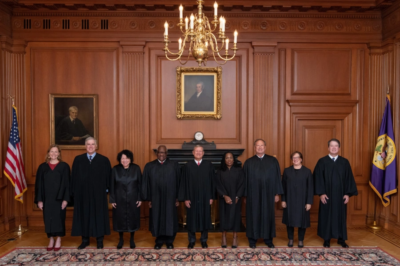 Supremes gone wild: Thought the high court was bad already? Just you wait! By Heather Digby Parton / Salon
Supremes gone wild: Thought the high court was bad already? Just you wait! By Heather Digby Parton / Salon
Gutting abortion rights and the EPA wasn’t enough. Now the Supreme Court goes for the big prize: Ending democracy
Today is the first Monday in October, the first day of the new Supreme Court term — and the court is in crisis. According to the Gallup poll, its public approval ratings have never been lower, with 58% of Americans disapproving of how this court is handling its job. A good part of that can be attributed to the Dobbs decision overturning the right to abortion, which had been effectively enshrined in the Constitution for 50 years. Unfortunately, they aren’t finished. Indeed, the right-wing justices and their allies are just getting started. If this term goes like the last one, get ready for the court to lose another 20 points in approval. It will hear cases on religion, free speech, LGBTQ rights, affirmative action and voting. It’s not hard to imagine where the right-wing majority that signed on to the Dobbs decision will go now that they’ve decided to let it all hang out. Read more
Related: The Supreme Court Is Ready to Take Down More of the Voting Rights Act. By Elie Mystal / The Nation
Related: Justice Jackson makes waves in first Supreme Court arguments. By Lawrence Hurley / NBC News
 In ‘Our Unfinished March’ Eric Holder argues for reforming the Supreme Court. By Michael Martin / NPR
In ‘Our Unfinished March’ Eric Holder argues for reforming the Supreme Court. By Michael Martin / NPR
In his new book, Our Unfinished March, former Attorney General Eric Holder argues in favor of reforms, such as term limits and streamlining appointments, that he says would protect minorities. In an interview with Michel Martin on All Things Considered, Holder talks about how citizens can also take part by being active and engaged in politics locally. Listen here
Related: America Has a Ginni Thomas Problem. By Charles M. Blow / NYT
Throughout the United States, racial separation remains a common feature of collective life. The consequences are significant for left political organizing aimed at building a multiracial working-class majority.
Today, the United States is no longer segregated as a matter of explicit law. But throughout the country—in cities and rural areas, blue states and red ones—racial separation remains a common feature of collective life. Alongside real improvements since the high tide of Jim Crow, recent decades have brought profound backsliding, and many communities and institutions are more segregated now than they were thirty years ago. The consequences are significant for left political organizing aimed at building a multiracial working-class majority. Segregation has long undermined the left’s transformative ambitions, and it remains a direct threat today. Read more
 University makes major push for diversity without considering race, gender in admissions. By John Yang and Cat Wise / PBS
University makes major push for diversity without considering race, gender in admissions. By John Yang and Cat Wise / PBS
Past Supreme Court rulings have allowed colleges to consider race in their admissions processes and about 40 percent do. But the justices will soon revisit the issue and could overturn years of precedent. John Yang visited a university making a big push to improve diversity without the consideration of race or sex in the admissions process. It’s part of our series, “Rethinking College.” The University of California, Berkeley, accepted only about 11 percent of applicants for this year’s freshman class, which is one of the most diverse in decades. Nearly 70 percent are U.S. students of color. Read more
 The Deadly Collision of Racism and Mental Illness. By Eyal Press / NYT
The Deadly Collision of Racism and Mental Illness. By Eyal Press / NYT
We need to stop using mental illness to argue that attacks targeting the members of particular ethnic, racial or religious groups are not motivated by bias. But we also need to take mental illness into account when deciding how to respond to these crimes and how to treat the perpetrators in individual cases. It’s only by breaking down the binary between the medical and the political that we can begin to make sense of individuals’ actions — and to think about how to reform them. Read more
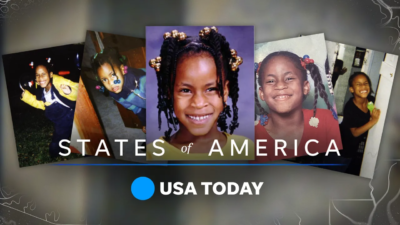 ‘Help me find my children’: How race affects social media efforts to find missing kids. By Doug Caruso, Rachel Looker and Ashley Luthern / USA Today
‘Help me find my children’: How race affects social media efforts to find missing kids. By Doug Caruso, Rachel Looker and Ashley Luthern / USA Today
Social media could be an equalizer for finding missing children, highlighting posts about kids from all backgrounds without the filters of traditional media and police gatekeepers. But a USA TODAY analysis suggests social media audiences still pick favorites by bestowing more likes, shares and views on posts about missing white children — especially girls — than missing Black children. Researchers have determined that news media and police pay less attention when people of color vanish, a phenomenon commonly known as “missing white woman syndrome.” Social media managers at the center said they focus on the most vulnerable and those the news ignores; on the center’s Facebook page — with nearly 1.2 million followers — they posted more videos about missing Black kids than other children. Read more
Ethics / Morality / Religion
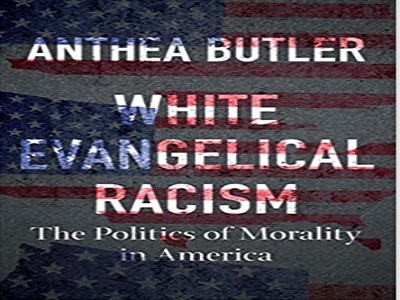 White Evangelical Racism: The Politics of Morality in America. By Christopher Metress / Christian Scholars
White Evangelical Racism: The Politics of Morality in America. By Christopher Metress / Christian Scholars
There is no mistaking the purpose of this book, as well as the author’s awareness of how this purpose will be received by her audience. In her opening sentence, Anthea Butler makes both clear: “White Evangelical Racism tells a concise history of the evangelical movement and—here is the hard part—the racist and racial elements that imbue its beliefs, practices, and social and political activism.” Read more
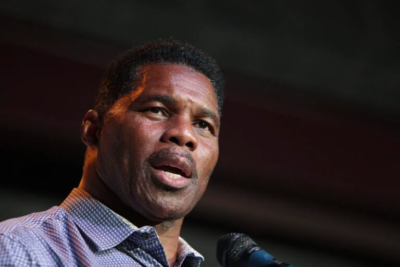 In wake of abortion scandal, Herschel Walker attends closed-door prayer event. By Jack Jenkins / RNS
In wake of abortion scandal, Herschel Walker attends closed-door prayer event. By Jack Jenkins / RNS
Georgia Republican candidate for U.S. Senate Herschel Walker attended a closed-door prayer event at a prominent evangelical church in Atlanta on Tuesday (Oct. 4), huddling with religious supporters a day after he denied allegations he paid for an abortion in 2009. The event, a “Herschel Walker Prayer Luncheon,” was convened at First Baptist Atlanta, which was once led by prominent evangelical leader the Rev. Charles Stanley. Press was reportedly barred from the event, with an official saying the decision was made by the church and Walker’s campaign. Read more
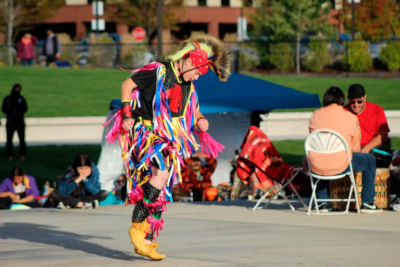 United Methodists’ Native American International Caucus calls for end to Columbus Day. By Emily McFarlan Miller / Religion News Service
United Methodists’ Native American International Caucus calls for end to Columbus Day. By Emily McFarlan Miller / Religion News Service
The Native American International Caucus, which advocates for Native Americans both inside and outside of the United Methodist Church, is calling on lawmakers to get rid of Columbus Day.
To replace the federal holiday, which this year falls on Oct. 10, the caucus is asking Congress to approve several bills formalizing Indigenous Peoples Day as a legal public holiday, according to a statement from the caucus posted on it website Tuesday (Oct. 4). “While we respect the ethnic community of American Italians, we cannot accept or support the continued state-sponsored, public recognition of Christopher Columbus as a symbol of discovery, exploration, conquest since it continues to significantly harm all Native people both those within and outside the 570+ Native American tribal nations in the United States, who continue to live with the impact of systemic injustices and abuse began by settler colonialism,” the statement reads. Read more
Historical / Cultural
 How Supreme Court Diversity Has Shaped American Life. By Amber Phillips / Wash Post
How Supreme Court Diversity Has Shaped American Life. By Amber Phillips / Wash Post
White men have decided Americans’ basic rights for centuries, but seven justices have made a difference
Representation doesn’t always translate into expanded rights for the people being represented. Often, judicial philosophy takes precedent. See Amy Coney Barrett and Thomas, who often side with their White male conservative colleagues. Sometime this year, the Supreme Court may get its first Black female justice. But there still are many Americans who have never been reflected on the court. For example: There’s never been a justice of Asian or Native American descent. No justice has ever publicly identified as being gay. There has never been a Muslim justice. Read more
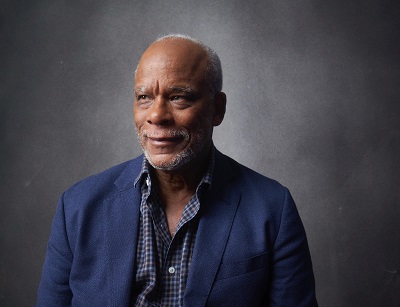 Looking at History Through a Black Lens. By Ed Rampell / The Progressive
Looking at History Through a Black Lens. By Ed Rampell / The Progressive
An interview with filmmaker Stanley Nelson on his two new documentaries about abolitionist heroes: Harriet Tubman and Frederick Douglass.
Long one of our foremost filmmakers chronicling the African American experience, Nelson was born in New York City in 1955. The veteran producer/director was Oscar co-nominated for 2021’s gut wrenching Attica, about the 1971 prison uprising in Upstate New York, and won or co-won Emmy Awards for 2002’s The Murder of Emmett Till and 2010’s Freedom Riders. He was co-nominated for two other Primetime Emmys, including 2015’s The Black Panthers: Vanguard of the Revolution. Read more
 Richard Wright’s Legacy of Exposing Racial Violence Honored on Anniversary of Elaine Massacre in Arkansas. By Amy Goodman / Democracy Now
Richard Wright’s Legacy of Exposing Racial Violence Honored on Anniversary of Elaine Massacre in Arkansas. By Amy Goodman / Democracy Now
In Part 2 of our our interview about the 103rd anniversary of the 1919 Elaine massacre, which was commemorated this weekend, we continue our conversation with Julia Wright, daughter of the acclaimed Black author Richard Wright, who called Elaine home and wrote about his great-uncle Silas Hoskins’s lynching in Elaine three years prior in 1916. We also speak with Paul Ortiz, historian at the University of Florida, about one of the worst racial massacres in U.S. history, when white mobs in Arkansas killed over 200 African Americans. After the massacre, no white attackers were prosecuted, but 12 Black union members convicted of riot-related charges were sentenced to death. Read more
 Black Resilience Finally Gets Its Due in New PBS Documentary. By Angela Johnson / The Root
Black Resilience Finally Gets Its Due in New PBS Documentary. By Angela Johnson / The Root
In “Making Black America: Through The Grapevine” Henry Louis Gates Jr. examines the myriad ways Black people have overcome the odds.
Throughout history, Black people have been able to make a way out of no way. And now, a new PBS series from Professor Henry Louis Gates, Jr. takes a closer look at our incredible resolve. Written, produced and hosted by Gates, Making Black America: Through the Grapevine is a four-part series that honors the resilience Black people have shown throughout history in the face of decades of exclusion and discrimination. Making Black America: Through the Grapevine premiered October 4 on PBS stations around the country. Read more
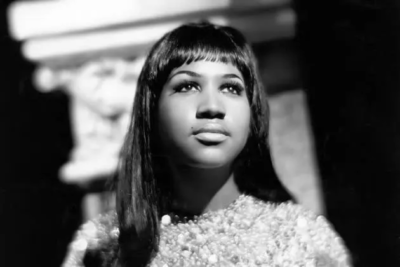 Aretha Franklin Was Tracked By the FBI for 40 Years. Here’s What’s In Her File. By Jenn Dize and Afeni Evans / Yahoo
Aretha Franklin Was Tracked By the FBI for 40 Years. Here’s What’s In Her File. By Jenn Dize and Afeni Evans / Yahoo
From 1967 to 2007, the Federal Bureau of Investigation methodically collected information about Aretha Franklin using false phone calls, surveillance, infiltration, and highly-placed sources, according to the documents obtained in September by Rolling Stone.
Franklin’s FBI file — first requested in via the Freedom of Information Act on Aug. 17, 2018 — is 270 pages long, peppered with phrases like “Black extremists,” “pro-communist,” “hate America,” “radical,” “racial violence,” and “militant Black power” and overflowing with suspicion about the singer, her work, and the other activists and entertainers with whom she she spent time. Some documents are heavily redacted and others indicate that there may be additional materials in the FBI’s possession. Rolling Stone has requested the FBI make available any and all additional records. Read more
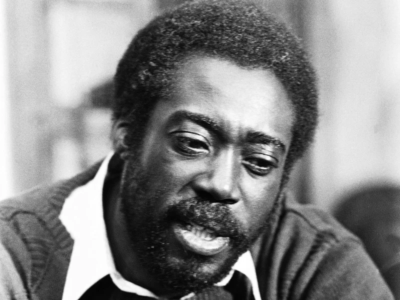 Pulitzer prize-winning playwright Charles Fuller dies at 83. By AP and NPR
Pulitzer prize-winning playwright Charles Fuller dies at 83. By AP and NPR
Charles Fuller, the Pulitzer Prize-winning playwright of the searing and acclaimed “A Soldier’s Play” who often explored and exposed how social institutions can perpetuate racism.
Fuller’s plays were filled with complex characters and an undercutting of conventions. “The best way to dispel stereotypes and massive lies is telling something as close to the truth as you can,” Fuller told Newsday. In one review of his work, The New York Times said “clichés of form, plot and character shatter like skeets at a shooting range.” Fuller’s most famous work, “A Soldier’s Play,” used a military setting in its tale of the search for the murderer of a Black sergeant on an Army base in Louisiana during World War II. It dissected entrenched racism as well as internal divisions in the Black military community, wrapping it in a murder mystery. The play won the Pulitzer Prize for drama in 1982 and two years later was made into the Oscar-nominated best picture “A Soldier’s Story,” for which Fuller wrote the screenplay and earned an Oscar nomination. Read more
Sports
 With His 62nd Home Run, Aaron Judge Makes His Case. By David Waldstein / NYT
With His 62nd Home Run, Aaron Judge Makes His Case. By David Waldstein / NYT
A blast against Texas vaulted Judge past Roger Maris for the American League’s single-season record, rekindling enthusiasm for a milestone spoiled by the steroid era.
A little over 100 years ago, a charismatic and portly slugger named Babe Ruth began swatting balls over outfield fences by volume, helping establish the home run as one of the most coveted individual achievements in sports, and the Yankees as the most honored franchise. Ruth’s records, including 60 home runs in 1927, became sacred milestones, cherished for decades by millions. In 1961, Roger Maris, as humble and retiring as Ruth was gregarious, broke the single-season record when he hit 61 homers, also for the Yankees. Now Aaron Judge, as physically imposing as Ruth and as modest as Maris, has passed them both, homering against the Texas Rangers at Globe Life Field on Tuesday to reach 62 for the season, setting a new American League record. Read more
Related: Is Aaron Judge Adopted? What Is Aaron Judge’s Ethnicity? By Adrian Dorney / Sportskeeda
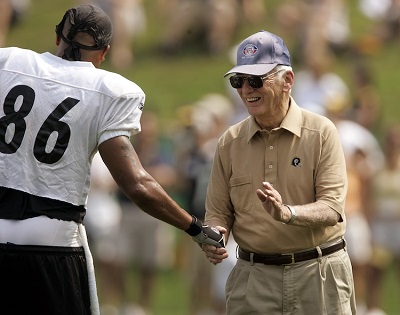 The failed NFL diversity ‘rule’ corporate America loves. By Gus Garcia-Roberts / Wash Post
The failed NFL diversity ‘rule’ corporate America loves. By Gus Garcia-Roberts / Wash Post
The rule, named for a revered Pittsburgh Steelers owner, Dan Rooney (shown) had been adopted by the NFL 17 years earlier in response to an outcry — and a legal threat — over the glaring dearth of Black head coaches in a league where nearly 70 percent of the players were Black.
The rule required teams to interview at least one minority candidate for every head coach opening. Billed as brilliant in its simplicity, it quickly became popular with corporate America, a trend that culminated shortly after Floyd’s death. But even as the Rooney Rule was endorsed by some of the most powerful entities in the country, from President Barack Obama to the nation’s biggest banks to the New York Police Department, the NFL appeared to be coming to terms with an uncomfortable reality. The Rooney Rule had failed. Read more
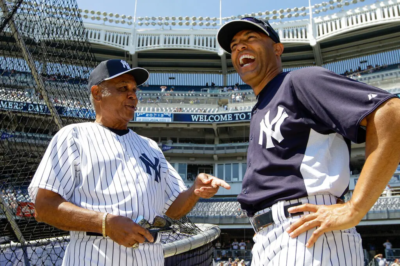 Hector Lopez, Who Broke a Baseball Color Barrier, Dies at 93. By Bruce Weber / NYT
Hector Lopez, Who Broke a Baseball Color Barrier, Dies at 93. By Bruce Weber / NYT
Hector Lopez, left, with the Yankees closer Mariano Rivera, a fellow Panama native, at Yankee Stadium before an old-timers game in 2013. Lopez played 12 major league seasons.
Hector Lopez, the first Black manager at the highest level of minor league baseball and one of the last living members of the early 1960s Yankees dynasty, who played in the team’s outfield alongside Mickey Mantle and Roger Maris, died on Thursday in Hudson, Fla. A native of Panama, Lopez was one of the first Black players for the Yankees. Appearing in five consecutive World Series, he was the very essence of a utility player, a capable nonstar who filled in as an infielder or an outfielder wherever there was a need. Read more
Site Information
Articles appearing in the Digest are archived on our home page. And at the top of this page register your email to receive notification of new editions of Race Inquiry Digest.
Click here for earlier Digests. The site is searchable by name or topic. See “search” at the top of this page.
About Race Inquiry and Race Inquiry Digest. The Digest is published on Mondays and Thursdays.
Use the customized buttons below to share the Digest in an email, or post to your Facebook, Linkedin or Twitter accounts.
 Our Segregation Problem. By Aziz Rana / Dissent
Our Segregation Problem. By Aziz Rana / Dissent